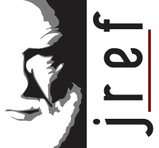
By Sharon Hill
What happened to the chain-rattling, stone-throwing, hair-raising physical manifestations of entities we used to hear about from the old days? Did the ghosts get lamer or is the changing face of paranormal activity a reflection of ourselves and our needs?
Today’s ghost hunters on weekend jaunts and on TV and seem to know very little of the long, convoluted, vibrant history of haunts and ghost lore. They would do well to pick up a copy of Roger Clarke’s A Natural History of Ghosts: 500 Years of Hunting for Proof (Penguin, 2012) and have a look at how ghosts have changed through time. A worthy companion to Finucane’s classic Ghosts: Appearances of the Dead and Cultural Transformation (Prometheus, 1996), this is a highly readable historical look at ghosts from a cultural perspective. You certainly don’t have to be a believer to enjoy it and learn along the way.
What happened to the chain-rattling, stone-throwing, hair-raising physical manifestations of entities we used to hear about from the old days? Did the ghosts get lamer or is the changing face of paranormal activity a reflection of ourselves and our needs?
Today’s ghost hunters on weekend jaunts and on TV and seem to know very little of the long, convoluted, vibrant history of haunts and ghost lore. They would do well to pick up a copy of Roger Clarke’s A Natural History of Ghosts: 500 Years of Hunting for Proof (Penguin, 2012) and have a look at how ghosts have changed through time. A worthy companion to Finucane’s classic Ghosts: Appearances of the Dead and Cultural Transformation (Prometheus, 1996), this is a highly readable historical look at ghosts from a cultural perspective. You certainly don’t have to be a believer to enjoy it and learn along the way.

